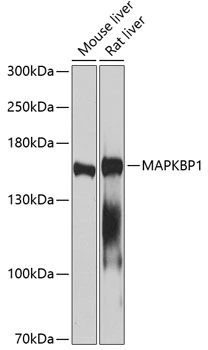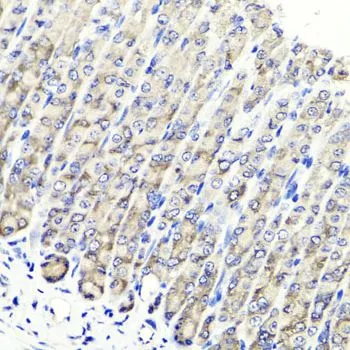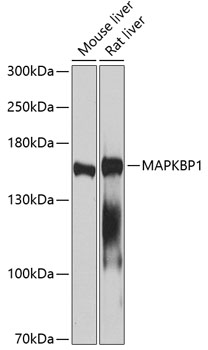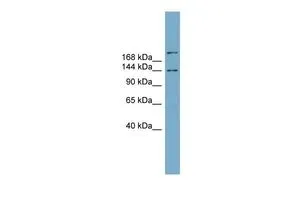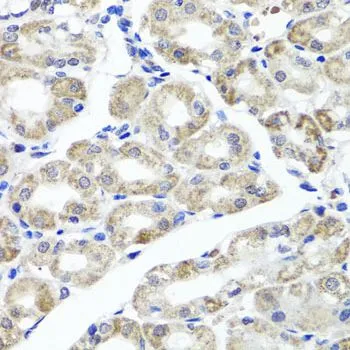
IHC-P analysis of human stomach tissue using GTX65625 MAPKBP1 antibody. Dilution : 1:100
MAPKBP1 antibody
GTX65625
ApplicationsWestern Blot, ImmunoHistoChemistry, ImmunoHistoChemistry Paraffin
Product group Antibodies
ReactivityHuman, Mouse, Rat
TargetMAPKBP1
Overview
- SupplierGeneTex
- Product NameMAPKBP1 antibody
- Delivery Days Customer9
- Application Supplier NoteWB: 1:500 - 1:2000. IHC-P: 1:50 - 1:100. *Optimal dilutions/concentrations should be determined by the researcher.Not tested in other applications.
- ApplicationsWestern Blot, ImmunoHistoChemistry, ImmunoHistoChemistry Paraffin
- CertificationResearch Use Only
- ClonalityPolyclonal
- ConjugateUnconjugated
- Gene ID23005
- Target nameMAPKBP1
- Target descriptionmitogen-activated protein kinase binding protein 1
- Target synonymsJNKBP-1, JNKBP1, NPHP20, mitogen-activated protein kinase-binding protein 1, JNK-binding protein 1
- HostRabbit
- IsotypeIgG
- Protein IDO60336
- Protein NameMitogen-activated protein kinase-binding protein 1
- Scientific DescriptionThis gene encodes a scaffold protein that regulates the JNK (c-Jun N-terminal kinase) and NOD2 (nucleotide-binding oligomerization domain-containing protein 2) signaling pathways. The encoded protein interacts with another related JNK pathway scaffold protein, WDR62, via a conserved dimerization domain, and enhances JNK signaling. This protein may play a role in bacterial immunity by binding to the NOD2 receptor and negatively regulating downstream antibacterial and pro-inflammatory signaling. Mutations in this gene that impair cellular localization of the encoded protein cause a form of nephronophthisis, an autosomal-recessive kidney disorder, in human patients. [provided by RefSeq, May 2017]
- ReactivityHuman, Mouse, Rat
- Storage Instruction-20°C or -80°C,2°C to 8°C
- UNSPSC41116161

